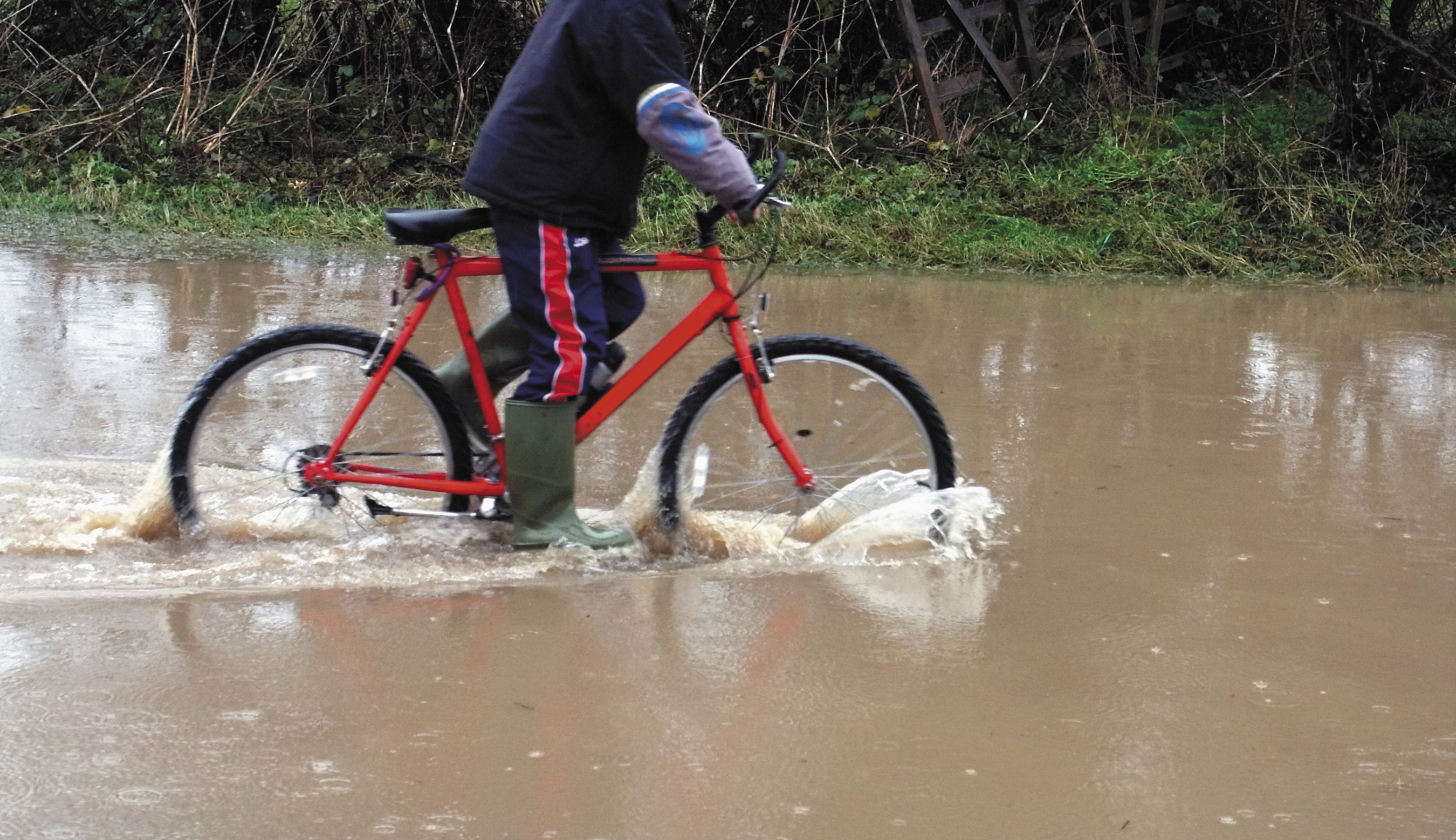
by James Carson
The storms which have continued to batter much of the UK since the end of 2013 have thrown into sharp focus the state of the country’s roads, something highlighted by an article in this month’s issue of The Surveyor.
The article looks at the challenges and costs of maintaining the country’s road network, following successive harsh winters, and reports that in 2012 local authorities in England filled over 2 million potholes – 29 per cent up on the previous year. But it also highlights the £741m shortfall in local authorities’ annual road structure budget. Increasingly, councils say they do not have the funds to meet their road maintenance obligations.
Meanwhile, highway maintenance contractors argue that investing in road repairs has benefits beyond safe and operational roads. The Asphalt Industry Alliance (AIA) surveyed England’s local authorities to deliver the maintenance figures reported in The Surveyor article. Introducing the survey, AIA chairman Alan Mackenzie commented:
“The need to tighten purse strings is clear, but the government is keen to boost the economy. What better way of doing so than by encouraging much-needed work on the local road network? This work can be started almost immediately and not only will create jobs on the road itself but will also give local economies a valuable boost.”
However, the UK Department for Transport insists councils are receiving enough funding to fulfil their obligations. Robert Goodwill, the roads minister, told the Daily Telegraph:
“The local authorities are rich to talk about cuts. We provided £3.4 billion to local highway authorities from 2011 to 2015, specifically for highways maintenance. “We have given them the tools to do the job. If they use the money wisely they can get ahead of the curve in dealing with potholes.”
Many argue that failing to maintain roads is a false economy, particularly when the cost of compensating drivers incurring damage to their vehicles, or for personal injury, as a result of potholes. Over the past financial year, councils in England have paid out £2.5m in compensation to drivers, In Scotland, the comparable figure in 2012 was £1.7m.
Some councils and contractors are adapting to the new realities. Ringway, the infrastructure contractor for Worcestershire County Council, told The Surveyor that adopting and enforcing a right-first-time approach to road maintenance ensures repair bills and traffic disruption are kept to a minimum. Meanwhile, since 2005, Portsmouth City Council has been working in partnership with the Colas infrastructure group on the first UK highway maintenance and management PFI contract. Under the contract, Colas maintains and manages the network including 418km of roads and 84 highway structures. One measure of the partnership’s success is its recognition at a number of industry awards events.
Contractors have also been working to develop new materials to tackle repairs and maintenance, including:
- Cold-lay surfacing materials for repairing potholes in cold, wet, hot and freezing temperatures;
- More flexible asphalt materials to provide enhanced resistance to cracking and pavement reformation;
- A new type of binding allowing lower temperature materials, resulting in faster completion of repairs.
But even with these material improvements, one contractor has described the road network as being “in its worst state in living memory.”
As the UK faces further stormy weather, the outlook for road repairs remains unsettled.
“Articles referred to in this blog (please note you must be a member to view them):”
Share
Related Posts
Supporting residents on the decarbonisation journey: leveraging data for effective retrofit projects
As the drive towards decarbonisation intensifies, the social housing sector’s ability to collect, store and manage vast amounts of data becomes increasingly critical. With a shared goal of creating warmer, carbon-free homes, housing associations’ strategic use of data is essential ....
With information now so accessible, it’s easy to assume that whenever you have a question you can simply tap it into a search engine. But, while the internet and digital search tools are undoubtedly useful for checking basic facts, when ....
The recent spikes in energy costs have thrown into sharp focus the challenge of heating our homes. Domestic heating is important, not just for our comfort and wellbeing, but to reduce humidity and prevent condensation. But because traditional heating systems ....
By Ian Babelon A new-old concept for proximity “Are we there yet?” Parents may patiently nod to their children’s insistent nudges on a 20-minute journey to… somewhere. Quite rightly, researchers have asked: twenty minutes to what? The answer may well ....
